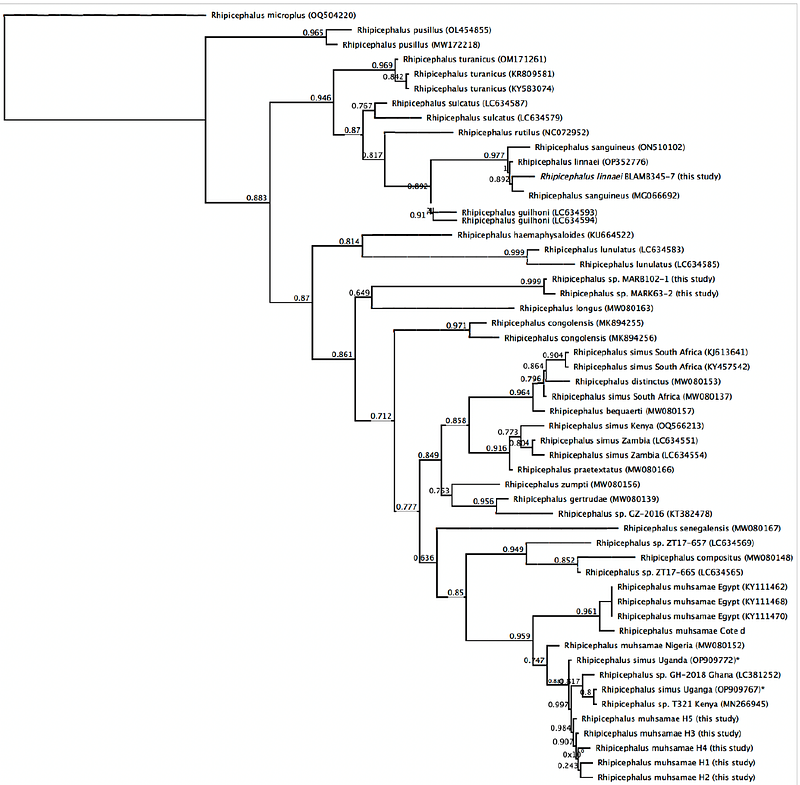One Health in practice: Multi-season survey of ixodid tick species collected from domestic dogs in Chad

One Health in practice: Multi-season survey of ixodid tick species collected from domestic dogs in Chad
Cleveland, C.; Friedman, M.; Thompson, A.; Haynes, E.; Coker, S.; Bryan, J.; Sidouin, M.; Ouakou, P. T.; Richard Ngandolo, B. N.; Yabsley, M. J.
AbstractTicks are medically important vectors of pathogens, many of which are zoonotic or impact domestic animal and/or wildlife health. Climate change, landscape use, and increasing interactions between domestic animals, wildlife, and humans have resulted in changes in tick-host dynamics and the emergence of novel pathogens worldwide. Therefore, it is crucial to describe the host and geographic ranges of vector species to assess disease risk, particularly in areas where research is lacking. This task necessitates adopting a One Health approach. In sub-Saharan Africa, previous work on ticks has focused primarily on those species most relevant to domestic livestock or humans, highlighting a significant knowledge gap concerning species of ticks that infest peri-domestic animals in rural areas. The objective of this study was to investigate the species diversity of ticks on peri-domestic dogs in rural areas of Chad, Africa. From 2019-2022, we collected 3,412 ixodid ticks from 435 peri-domestic dogs from 23 villages in Chad, Africa during both dry and wet seasons. Ticks were identified to species using morphological techniques and/or molecular analyses of the 16S rRNA, 12S rRNA, and cytochrome oxidase I gene regions. We identified 11 species of ticks from dogs including Amblyomma variegatum, Amblyomma marmoreum, Haemaphysalis leachi, a Haemaphysalis sp., Hyalomma impressum, Hyalomma truncatum, Rhipicephalus decoloratus, Rhipicephalus guilhoni, Rhipicephalus muhsamae, Rhipicephalus linnaei (=R. sanguineus tropical lineage), and a Rhipicephalus sp. Several of these tick species are known vectors for important canine and zoonotic pathogens and some are more commonly associated with cattle hosts. Our results show that sampling ticks from peri-domestic dogs provides an opportunity to examine vectors that may infest domestic animals, agricultural animals, wildlife, and humans as hosts in an understudied area.


